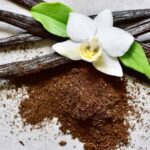Overview:
The slippery elm tree is native to North America, where it still grows primarily. The inner bark of the tree is the main part used for medicinal preparations.
Overview of Benefits:
Health Benefits:
Slippery elm is sometimes recommended to people who experience unexplained inflammation of the urinary tract, like those with interstitial cystitis (painful bladder syndrome). Slippery elm powder is thought to soothe the lining of the urinary tract. Therefore, it might help alleviate the painful irritating symptoms. Again, studies are needed to either support or refute these claims.
Inflammatory Bowel Diseases
Slippery elm bark is a demulcent. This means that it is capable of soothing the lining of the stomach and intestines and reducing irritation. Demulcents are sometimes referred to as mucoprotective agents.
Recent studies have shown that slippery elm bark can help treat the symptoms associated with inflammatory bowel diseases like Crohn’s disease, ulcerative colitis, and irritable bowel syndrome (IBS).
One small clinical study found that a mixture containing slippery elm enhanced bowel movements in patients with constipation-predominant IBS; however, the bark was part of a mixture of ingredients, and no study to date has supported these findings. Another studyTrusted Source found that slippery elm had an antioxidant effect in people with Crohn’s disease.
Soothing Cough & Sore Throat
Slippery elm contains mucilage, a sticky mixture of sugars that can’t be broken down by the human digestive tract. The mucilage coats the throat, so it’s no surprise that slippery elm is found commercially in many brands of throat lozenges.
Slippery elm is believed to be an antitussive, meaning it’s great for coughs and for symptoms of other upper respiratory ailments like bronchitis or asthma. Again, there are no studies to support or refute these claims.
Acid Reflux and GERD
Slippery elm may be helpful for treating occasional heartburn, also known as acid reflux. It’s also considered an nutriental remedy for gastroesophageal reflux disease (GERD).
GERD is a chronic disease that occurs when stomach acid flows back into esophagus and irritates the lining.
The mucilage of slippery elm coats the esophagus and may help prevent the irritation and inflammation that occurs when stomach acid flows up the esophagus.
d













